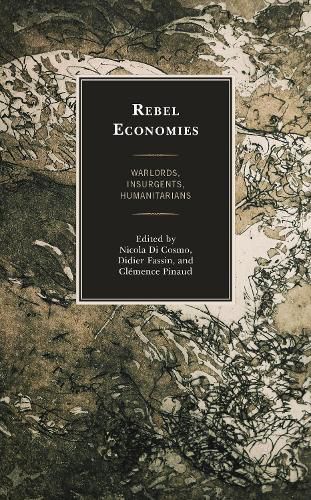Readings Newsletter
Become a Readings Member to make your shopping experience even easier.
Sign in or sign up for free!
You’re not far away from qualifying for FREE standard shipping within Australia
You’ve qualified for FREE standard shipping within Australia
The cart is loading…






As a pervasive occurrence in the contemporary world, wars and their economic sources are defining social and political processes in a variety of national and transnational contexts. Rebel Economies: Warlords, Insurgents, Humanitarians explores historical, anthropological and political dimensions of war economies by non-state actors across different periods and regions, while presenting their multiple manifestations as a unified, congruent phenomenon. Through a variety of conceptual and disciplinary approaches, the authors investigate, in the past and present and across three continents, the nexuses between economy, war, social transformation and state-building, revealing in the process differences and similarities that would otherwise remain hidden. Through this broad-gauge approach, the book aims, first, to rethink much of the debate around non-state war economies, and, secondly, to expand the conversation by consciously treating this theme as a conspicuous and distinct aspect of both economy and war. This is not just a different approach but a fundamental departure from the ways in which current discussions over the economy of wars, civil conflicts, and revolutions, have informed research orientations over several decades.
$9.00 standard shipping within Australia
FREE standard shipping within Australia for orders over $100.00
Express & International shipping calculated at checkout
As a pervasive occurrence in the contemporary world, wars and their economic sources are defining social and political processes in a variety of national and transnational contexts. Rebel Economies: Warlords, Insurgents, Humanitarians explores historical, anthropological and political dimensions of war economies by non-state actors across different periods and regions, while presenting their multiple manifestations as a unified, congruent phenomenon. Through a variety of conceptual and disciplinary approaches, the authors investigate, in the past and present and across three continents, the nexuses between economy, war, social transformation and state-building, revealing in the process differences and similarities that would otherwise remain hidden. Through this broad-gauge approach, the book aims, first, to rethink much of the debate around non-state war economies, and, secondly, to expand the conversation by consciously treating this theme as a conspicuous and distinct aspect of both economy and war. This is not just a different approach but a fundamental departure from the ways in which current discussions over the economy of wars, civil conflicts, and revolutions, have informed research orientations over several decades.